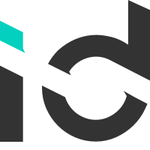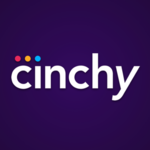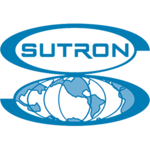Description

Adverity

IDLink
Comprehensive Overview: Adverity vs IDLink
Overview of Adverity and IDLink
Adverity and IDLink are two distinct products within the realm of data integration, analytics, and identity data management. Here is a comprehensive overview of each, focusing on their primary functions, target markets, market share, user base, and key differentiators.
a) Primary Functions and Target Markets
Adverity:
-
Primary Functions:
- Data Integration: Adverity provides advanced data connectivity and integration capabilities, allowing businesses to collect and harmonize data from numerous sources, including CRM, social media, and ERP systems.
- Data Visualization and Analytics: The platform offers tools for creating dashboards and reports, making data insights accessible and actionable.
- Predictive Analytics: Using machine learning algorithms, Adverity can predict trends and outcomes, aiding in strategic decision-making.
-
Target Markets:
- Marketing and Advertising Agencies: Adverity is ideal for marketing professionals looking to optimize campaigns through data-driven insights.
- Retail and E-commerce: Businesses in these sectors use Adverity to analyze sales data and improve customer targeting.
- Media and Entertainment: Companies use the platform to track audience engagement and measure content performance.
- Telecommunications and Finance: These sectors leverage Adverity for comprehensive data management and informed decision-making.
IDLink:
-
Primary Functions:
- Identity Verification: IDLink focuses on ensuring the authenticity of users through document verification and biometric checks.
- Fraud Detection and Prevention: The product employs AI to identify and prevent fraudulent activities across different platforms.
- KYC (Know Your Customer) Processes: Streamlines KYC procedures for businesses needing to comply with regulatory standards.
-
Target Markets:
- Financial Institutions: Banks and fintech companies use IDLink for secure customer onboarding and transaction management.
- E-commerce Platforms: IDLink helps online retailers prevent fraud and verify customer identities efficiently.
- Healthcare Providers: Verification processes secure patient data and streamline operations.
- Government and Public Sector: IDLink assists with citizen verification and secure access to services.
b) Market Share and User Base
-
Adverity:
- Market Share: As a comprehensive data integration and analytics tool, Adverity has gained significant traction in the digital marketing space, but precise market share figures may vary across regions and specific industry segments.
- User Base: Primarily comprises marketing professionals, data analysts, and business intelligence teams from mid-sized to large enterprises globally.
-
IDLink:
- Market Share: Within the niche of identity verification, IDLink competes with several established and emerging players, making its exact market share contingent upon the specific country and industry vertical.
- User Base: Financial institutions, online retailers, and other organizations with strict identity verification needs form the core of IDLink’s user base.
c) Key Differentiating Factors
-
Adverity:
- Integration Depth and Breadth: Offers extensive connectors and integrations with a wide variety of data sources, making it highly versatile for businesses with diverse data environments.
- AI and Predictive Analytics: Its integration of AI technologies for predictive analytics is a key feature that adds significant value for businesses looking forward.
- User-Friendly Visualizations: Adverity places a strong emphasis on visualization tools, making it easier for users to interpret data and derive insights.
-
IDLink:
- Focus on Security: IDLink places a strong emphasis on secure identity verification and fraud prevention, critical for high-compliance environments.
- Advanced Biometric Features: Utilizes cutting-edge biometric technology for robust identity checks, setting it apart from simpler verification solutions.
- Compliance and Regulatory Support: Assists businesses in meeting regulatory requirements like KYC and anti-money laundering (AML), which is pivotal for its target markets.
In summary, while Adverity focuses on comprehensive data integration and analytics across industries, IDLink specializes in secure identity verification and fraud prevention. These products serve different market needs, with Adverity targeting data-centric marketing and business analytics, and IDLink focusing on security and compliance in identity management.
Contact Info

Year founded :
2015
+43 1 8903155
Not Available
Austria
http://www.linkedin.com/company/myadverity

Year founded :
2018
Not Available
Not Available
Tunisia
http://www.linkedin.com/company/idlink-solutions
Feature Similarity Breakdown: Adverity, IDLink
Adverity and IDLink are both platforms used for data management and integration, each with specific features tailored to their target audiences. Here's a breakdown of their core features, user interface comparisons, and unique attributes:
a) Core Features in Common:
-
Data Integration:
- Both platforms offer robust data integration capabilities, allowing users to connect and harmonize data from multiple sources. This encompasses a wide variety of connectors to integrate data swiftly.
-
Data Transformation:
- They include tools for data transformation, enabling users to clean, manipulate, and structure data to suit their analytical needs.
-
Automatic Data Processing:
- Automation features to process and update data regularly without manual intervention are common in both platforms.
-
Scalability:
- Both solutions are designed to handle large datasets, catering to businesses of different sizes and requirements.
-
Analytics and Reporting:
- Each platform supports data visualization and reporting, enabling users to create dashboards and generate insightful reports.
b) User Interface Comparison:
- Adverity:
- Adverity's UI is known for being user-friendly and visually intuitive. It focuses on providing a drag-and-drop interface for data integration tasks, making it accessible even for users without a technical background. The dashboard layout is clean and customizable, allowing users to focus on key metrics and insights.
- IDLink:
- IDLink’s interface might be designed with a more technical audience in mind, potentially offering detailed customization options but requiring a steeper learning curve. The overall interface is likely to emphasize functionality, catering to users who require complex data management capabilities for specialized needs.
c) Unique Features:
- Adverity:
- Intelligent Data Mapping and Harmonization: Adverity utilizes AI to optimize data mapping and harmonization processes, reducing manual effort and improving efficiency.
- Marketing Analytics Specific Functions: Designed with a strong orientation towards marketing and sales analytics, offering features tailored specifically for these departments.
- IDLink:
- Identity Resolution: As its name suggests, IDLink may focus on identity resolution, ensuring accurate data matching and deduplication, which is crucial for businesses dealing with customer data management.
- Advanced Security Features: IDLink might offer advanced security measures for data protection, considering its potential focus on identity and sensitive data management.
Both platforms are powerful but cater to slightly different needs and expertise levels. Businesses should consider their specific requirements and user capabilities when choosing between these solutions.
Features

Not Available

Not Available
Best Fit Use Cases: Adverity, IDLink
Adverity and IDLink are powerful tools designed to cater to specific needs within the realm of data management and analytics. Understanding their best fit use cases helps businesses leverage these tools effectively.
a) Adverity Use Cases
1. Types of Businesses or Projects:
- Marketing Agencies and Teams: Adverity is ideal for marketing agencies that need to consolidate data from various sources. With its robust data integration capabilities, it automates the collection and unification of data from multiple marketing platforms.
- E-commerce Companies: Retail and e-commerce businesses that rely on data from numerous sales channels, advertising platforms, and social media sources can benefit from Adverity’s centralized data management to drive insights and improve ROI.
- Large Enterprises: Companies that manage vast amounts of data across different departments can use Adverity to break down data silos and provide actionable insights to business leaders.
2. Scenarios:
- Data-Driven Decision Making: In scenarios where businesses need to make informed decisions based on data from disparate sources, Adverity provides a centralized platform for data integration and analytics.
- Performance Tracking: For projects focused on performance monitoring across various marketing channels, Adverity simplifies data harmonization and dashboarding.
b) IDLink Use Cases
1. Types of Businesses or Projects:
- Financial Institutions: Banks and insurance companies needing enhanced customer identity verification processes can benefit from IDLink’s capabilities.
- Healthcare Providers: Organizations needing robust systems to ensure the accuracy and security of patient identity data.
- Public Sector Agencies: Government agencies looking to improve citizen identity management and prevent fraud.
2. Scenarios:
- Identity Verification: IDLink is preferred in scenarios where businesses need to confirm the identity of their customers or users reliably.
- Fraud Prevention: Companies that require advanced systems to detect and prevent identity fraud will benefit from IDLink’s verification processes.
d) Catering to Industry Verticals and Company Sizes
Adverity:
- Industry Verticals: Adverity is versatile across various sectors like retail, finance, and media, where data is pivotal for strategizing and optimizing marketing efforts.
- Company Sizes: Suitable for mid-sized to large enterprises, especially those with complex data environments requiring integration and analysis.
IDLink:
- Industry Verticals: Primarily serves industries with a high need for secure and accurate identity management. Financial services, healthcare, and government sectors are the main beneficiaries.
- Company Sizes: While useful for businesses of all sizes, IDLink’s sophisticated capabilities are particularly beneficial to large organizations with stringent identity verification and compliance requirements.
Both Adverity and IDLink provide specialized solutions that cater to industry-specific demands. While Adverity focuses on data management and insights for growth, IDLink ensures secure identity verification, making them suitable for different operational needs.
Pricing

Pricing Not Available

Pricing Not Available
Metrics History
Metrics History
Comparing teamSize across companies
Conclusion & Final Verdict: Adverity vs IDLink
To provide a comprehensive conclusion and verdict for Adverity and IDLink, we'll need to assess each product based on factors such as functionality, scalability, ease of use, customer support, pricing, and specific use cases.
Conclusion
a) Best Overall Value:
Considering all factors, Adverity generally offers the best overall value for businesses looking for a comprehensive data integration and analytics platform. It stands out particularly for its wide range of connectors, strong data visualization capabilities, and adaptability to various business needs, from marketing analytics to reporting automation.
b) Pros and Cons:
Adverity:
-
Pros:
- Extensive Integrations: Supports a huge number of data sources and connectors, making it very versatile.
- Scalability: Can handle large volumes of data, making it suitable for growing businesses or enterprises.
- Advanced Analytics: Offers robust analytics and visualization tools, enhancing data-driven decision-making.
- User-Friendly Interface: Allows non-technical users to leverage complex analytics.
- Strong Customer Support: Known for responsive and effective support.
-
Cons:
- Pricing: Can be expensive for smaller businesses or startups with limited budgets.
- Complexity: The vast array of features can be overwhelming for new users without a comprehensive onboarding process.
IDLink:
-
Pros:
- Focused Features: Offers specialized functions that might cater well to specific needs, particularly in identity resolution or data linking.
- Competitive Pricing: Often more affordable, making it attractive to smaller businesses.
- Niche Applications: Could be more suited for businesses requiring precise functionality in areas where it specializes.
-
Cons:
- Limited Integrations: May not support as many data sources or connectors as Adverity, limiting its use for diverse or complex data aggregation.
- Narrower Scope: Might not provide the broad analytics capabilities that larger businesses need.
- Scaling Challenges: Less suited for organizations with rapidly growing data needs or diverse data environments.
c) Recommendations:
-
For Comprehensive Analytics and Large Enterprises: Choose Adverity. Its robust features and scalability make it suitable for complex data environments and large organizations requiring extensive data insights and integrations.
-
For Specific Use Cases or Budget Constraints: Consider IDLink if your primary need aligns with its specialized functions, and you operate within a narrower data context or budget.
-
Trial and Evaluation: Businesses should leverage free trials (if available) or request demos to determine how each platform aligns with their specific needs. This hands-on experience can be crucial in making an informed decision.
-
Identify Needs and Growth Potential: Clearly define your data integration and analytics needs, taking future growth into account, to ensure the chosen platform can scale accordingly.
Ultimately, the decision between Adverity and IDLink hinges on the specific analytical and integration requirements of the business, budget capacity, and desired scalability.
Add to compare
Add similar companies




